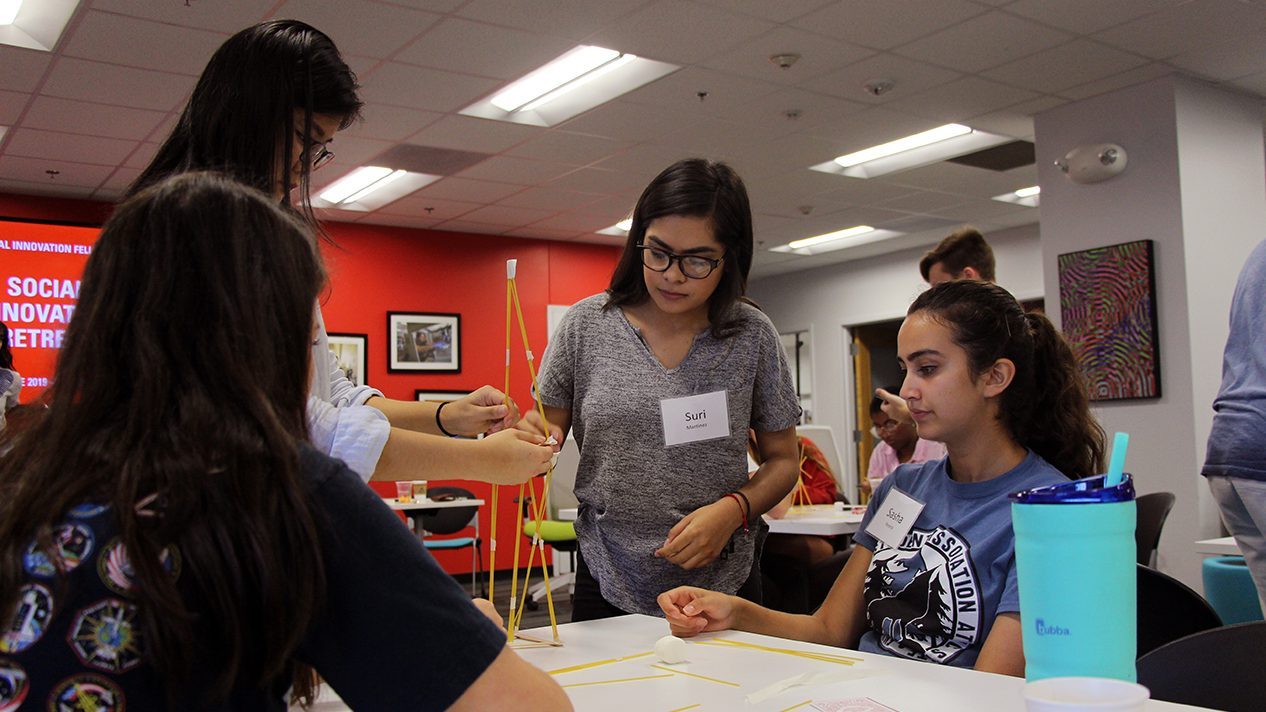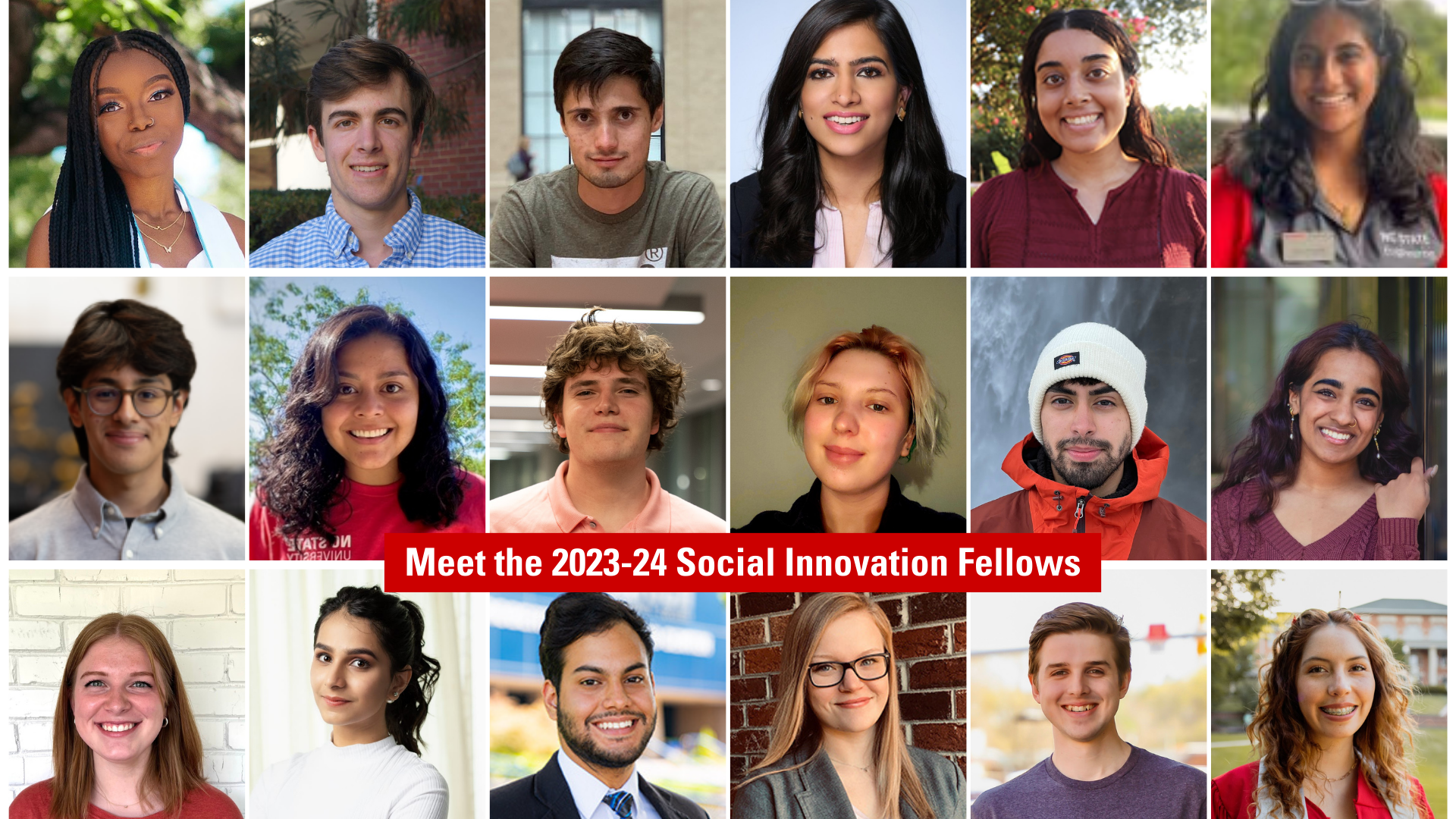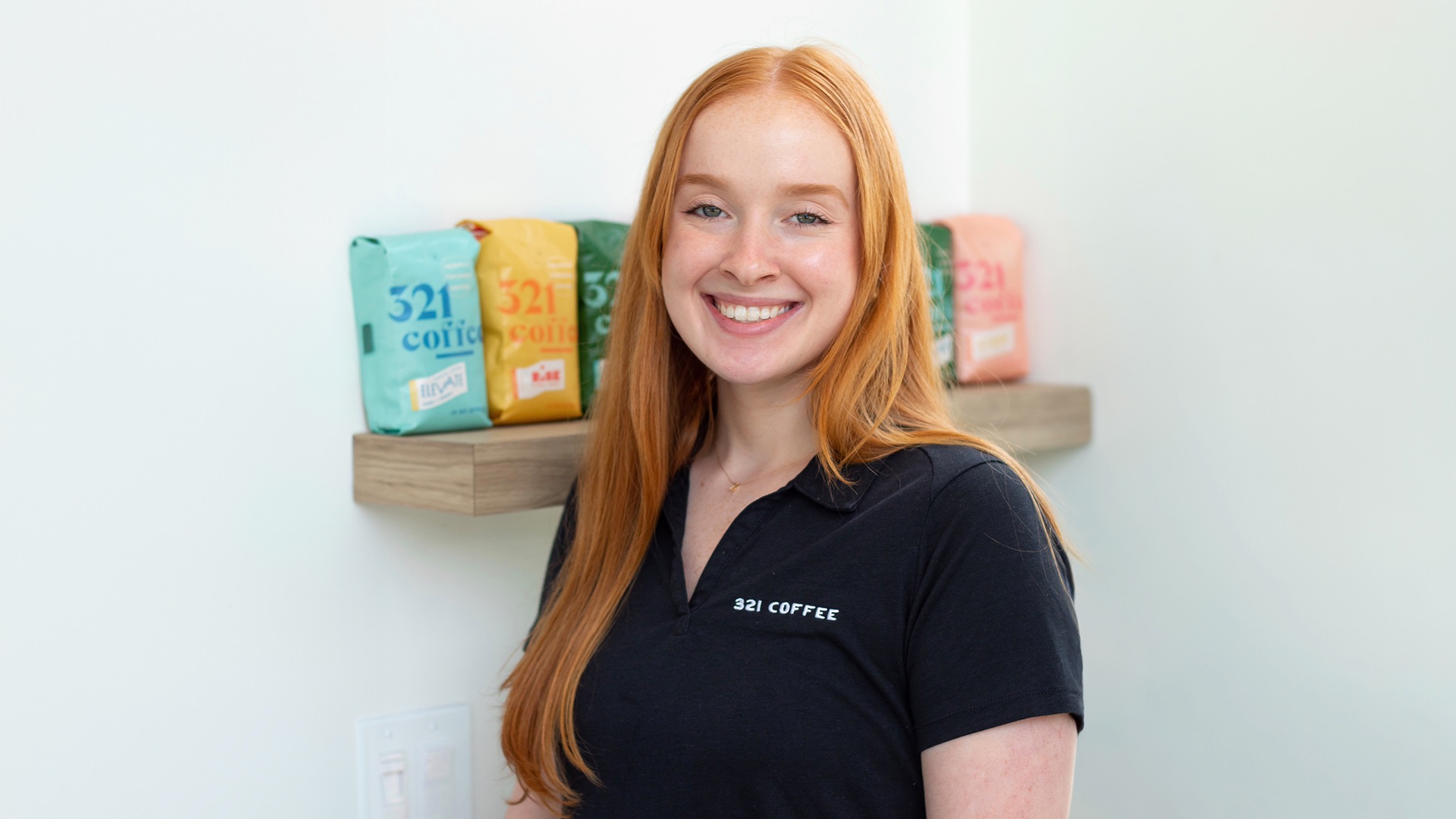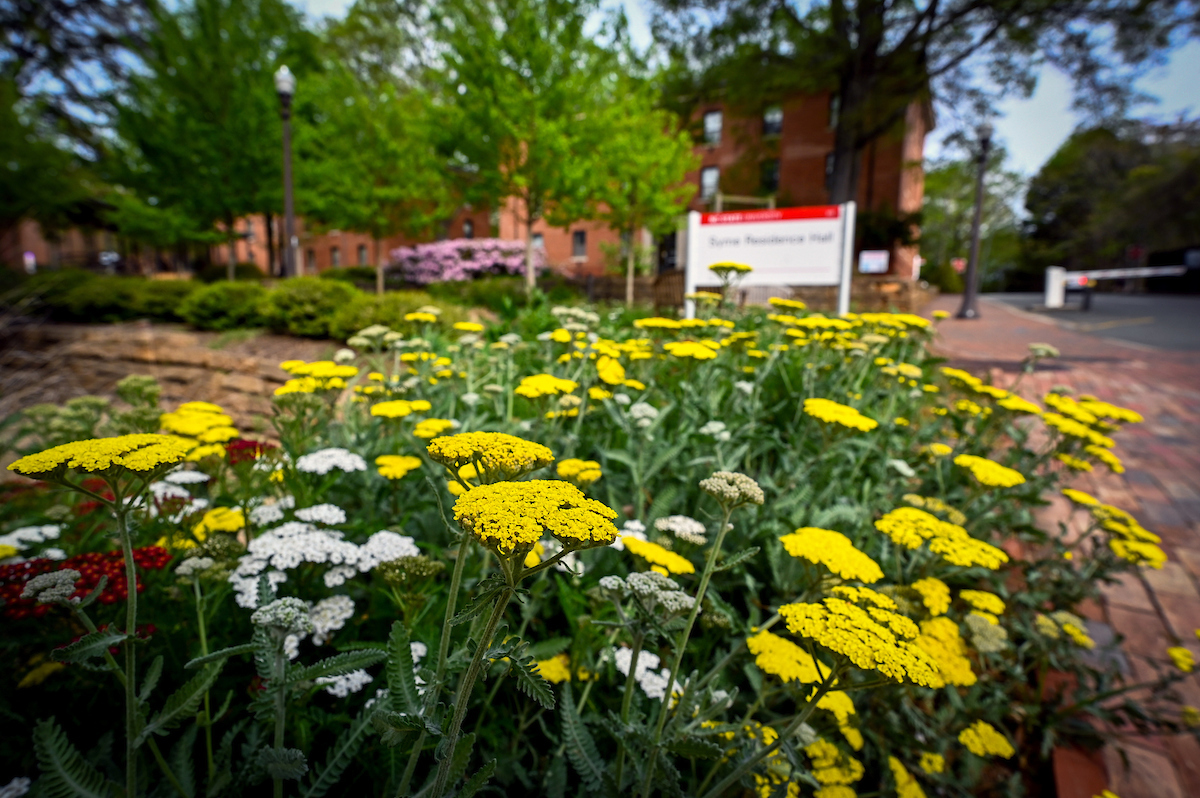Social Innovation Fellows: Fall Update

People often associate social innovation and the work of “doing good” with words like inspiring, volunteering, or satisfying. While those are important words, no word fits quite so well as messy.
Sometimes even the most straightforward-seeming projects are piles of complexity waiting just under the surface. This is one of the most engaging aspects of the work in the Social Innovation Fellows (SIF), and it is both inspiring and satisfying to watch these students volunteer to deal with the hurdles and setbacks consistent with the journeys of most social innovators.

Fall Semester Journey
This fall semester, the SIF teams have worked through the “Discover” phase of our “Discover, Design, Do Good” learning pathway. They have spent their time focused on researching, scoping and understanding the problem(s) they hope to tackle, while gathering expertise on their specific social issues.
A major component of this phase is understanding conceptual issues through the eyes of the Venture Partner with which each team is working, while considering the multiple perspectives and dimensions of these issues.
Each of the Fellows teams have had to grapple with difficult questions, including how to overcome geographic and cultural barriers of understanding, how to become aware of and challenge their assumptions related to the problem, and how to ensure that their vision for a design solution becomes a reality.
Answering these questions will be a year-long (or even life-long) process, but they are starting off on the right foot by utilizing iterative processes and design thinking tools.
Mid-Year Presentations
On December 11, 2019, each of the SIF teams had the opportunity to present their Venture projects, including their work to date and next steps, to over 100 guests including the SIF Brain Trust. A common theme among each team was the multilayered narratives that developed as their research progressed, resulting in many unexpected roadblocks.

For example, the Our Wave team has been challenged with addressing the delicate issue of sexual assault and ensuring that the platform is always a force for good when it comes to the stories of survivors. A nonprofit founded by NC State alum Kyle Linton, Our Wave provides an anonymous online platform for survivors of sexual assault to share their stories and support one another.
The team has also worked on researching the most effective ways to spread awareness about the platform. Their biggest challenge for the next semester will be choosing the most appropriate path of opportunity for their team to follow, including the development of educational resources and creating a sustainable revenue model for the organization.
Challenged by CEO/founder and NC State student Emily Neville, the Reborn Clothing Co team initially hoped to help the company manage its rapid growth while ensuring a commitment to remaining an ethically-sourced and mission-driven business.
After scoping the problem and considering the personal skills they could contribute, the students hope to use next semester to construct a marketing narrative for the brand. They anticipate that by utilizing metrics to support Reborn’s mission of sustainability, consumers will be more likely to personally identify with the social mission.

Similar to Reborn, the Haiti Goat Project team is also hoping to use marketing to garner community support for their mission. A social enterprise led by Professor Char Farin from the NC State Department of Animal Science, this project helps support the Haitian agricultural community and provide nutritious school lunches to children from rural Haiti in grades pre-K through 6th.
The students’ goals for next semester are to work on creating an informational video about the organization.
700 Rivers is a startup founded by NC State alum Catherina Gomes to employ women who have escaped sex trafficking in Bangladesh. To support its mission, the company creates handmade artisan soaps using sustainable materials and packaging.
The Fellows began the year with a plan to assist with business development and branding in order to help launch the startup. They have been deeply researching what it means to be “fair trade” and how to ensure that the ethics of the company are present from customer to creation. This spring, the team hopes to hone its focus on supply chain validation or a marketing strategy.
The Water in the Fields team started the year with the mission of helping to test the efficacy of the Episcopal Farm Worker Ministry’s water bottle program while offering ideas and planning for next steps. Upon further research and interviews with the farm workers, they discovered that the issue runs deeper than the physical convenience of a water bottle.
[pullquote color=’indigo’ align=’left’] It’s important to keep asking ‘why’ because problems that look simple on the surface are typically tied to more complex, structural issues. – Hannah Bain, Water in the Fields [/pullquote]
After interviewing farm workers on location, the team discovered that many of the farm workers emphasized that they in fact were not thirsty or dehydrated. The team hopes to use the next semester to collect data to validate the question of whether or not the issue is simply a lack of knowledge about the symptoms of dehydration, and heat exhaustion.
Next Steps
Each Spring semester of the Fellows experience brings about the chance to begin building on the foundation of knowledge that each team has worked to establish.
It is also a time of extraordinary growth and learning, including many more unexpected roadblocks, changes of direction, and new discoveries.
The Fellows will be moving forward into the new year with ample research and ideas under their belts.

Their focus as a program will be to finish the “Design” learning pathway, during which they learn to lead with others, and transition into the “Do Good” stage, where they are tasked with implementing their solutions with the help of community.
All of these teams, team mentors, and venture partners have put in countless hours towards this work; this spring, we will see them move from questioning and understanding into implementation and impact.
The Social Innovation Fellows is a program of the NC State College of Humanities and Social Sciences. For more information about how to get involved, visit go.ncsu.edu/sifellows.
- Categories:


